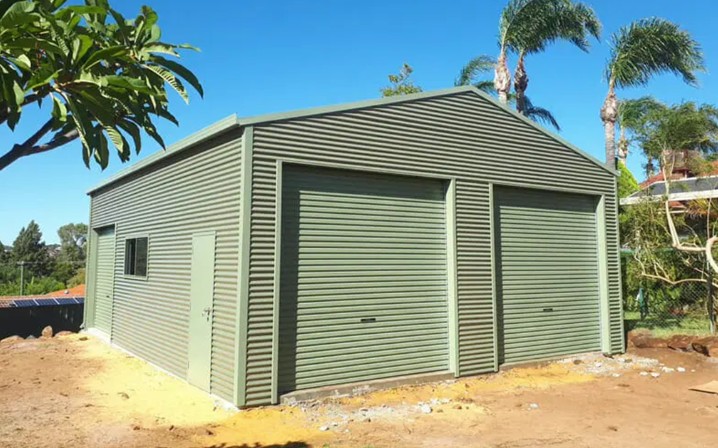Two Young Roommates Are Building An Artificial Intelligence Real Estate Empire
/https://specials-images.forbesimg.com/imageserve/6197b0ddfb2e0726828aedae/0x0.jpg)
Zuma Cofounders Shiv Gettu and Kendrick Bradley
Zuma
For many years, people dreaded the emergence of artificial intelligence and new technologies. Those who grew up before the iPhone and internet felt that their jobs would be put into jeopardy.
The pandemic made even the most fervent Luddites change their attitude toward robotics, AI and technology. While sheltering at home, riding out the Covid-19 outbreak, they turned to online shopping on Amazon, ordering food deliveries via DoorDash and having others shop for food with the Instacart app. If a person needed to venture outside, and didn’t want to risk going on public transportation, they requested an Uber or Lyft car.
Now that we’ve become accustomed and dependent upon tech platforms for most of our activities, we don’t want to turn back. There is nearly an app for all aspects of our lives. Instant information and results are what we want.
Just as there is an Uber app, a driver is needed—at least until we have autonomous driverless cars. In many industries, AI will start the process and a person will be around to help. Car salespersons, real estate agents and clerks at department stores will supplement the initial interaction between AI and the customer.
If you think about it, most any sector can offer a better experience with the introduction of technology. Real estate is a great example of how AI, chatbots and tech can make the renting of an apartment a better experience. If you’ve rented before, you know how irritating it can be.
Two young entrepreneurs, Shiv Gettu and Kendrick Bradley, saw a need in the real estate rental market. Bradley left his engineering job to work at a property management company to learn the space, as a leasing agent. He noticed that there was a lack of technologies to support real estate sales teams. Roommates, Gettu and Bradley, while both working full-time jobs, set out to build a hospitality property company. It grew to $2 million in revenue in nine months.
However, when Covid-19 hit in 2020, Gettu and Bradley’s company had long-term lease commitments, and with business and leisure travel at a standstill, were running out of runway and needed to get their properties leased. The cofounders quickly turned the company into a virtual leasing office powered by AI to automate the conversion process, and that grew to become Zuma, launching today with a $6.7 million seed round in funding led by Andreessen Horowitz.
Their idea is to change the way apartments are rented. If you’ve ever shopped for a new apartment, you may have run into a hardened, tough-talking real estate agent. They schlep you around to apartments that are “amazing, beautiful and priced at a bargain price.” When you actually see the property, you think a mistake was made, since they’re not amazing, beautiful nor a bargain. After being shown five more apartments, you call it quits, as you’ve lost trust in the agent’s judgement and feel pushed into something you don’t want.
The next outing, you’re supposed to meet the building’s property manager, who can’t be found. An hour later, you spot him fixing something on the premises and gruffly orders you to follow him to see the apartment. His phone keeps ringing with tenants calling. You politely leave, and he doesn’t notice or seem to care.
The Zuma app
Zuma
Consider how different this would be if the process was started online. You can send a text inquiring about an apartment listing. The AI will send a blueprint, the rental prices, amount of money required for deposit and the their terms of the lease. The texts can offer rich graphics, photos and videos highlighting the place. This could all be done from the comfort of your home. It’s less running around and a more productive use of time.
Automation also benefits the property owners. Consider a multifamily building with a property manager. If there is an interested renter who wants to make a quick decision, but it’s a night or weekend, this lead will go unanswered. The prospect will go elsewhere.
Zuma’s dynamic AI platform automates lead qualifications, engagement, follow-ups, demo and appointment scheduling. The platform, called Kelsey, is an “AI-powered sales assistant that answers complex questions in minutes, to qualify, nurture and convert leads to customers.”
“Kelsey understands which conversation tone, architecture and patterns are most successful at converting leads to sales, and converses with all inbound leads via text message within minutes to keep prospects engaged.” A human will step in to supplement Kelsey.
Connie Chan, general partner at lead investor Andreessen Horowitz, said, “Zuma’s blend between human support and AI creates a magical conversation experience for prospective customers that drastically increases conversion.”
The guys are working toward growing their business in the multifamily and related real estate sector. Ultimately, they plan to use their concept to apply to other industries. It’s amazing to see that the pandemic has created a boom in entrepreneurialism and shown how AI and tech, along with the human touch, can both improve the lives of people and build new innovative businesses.







